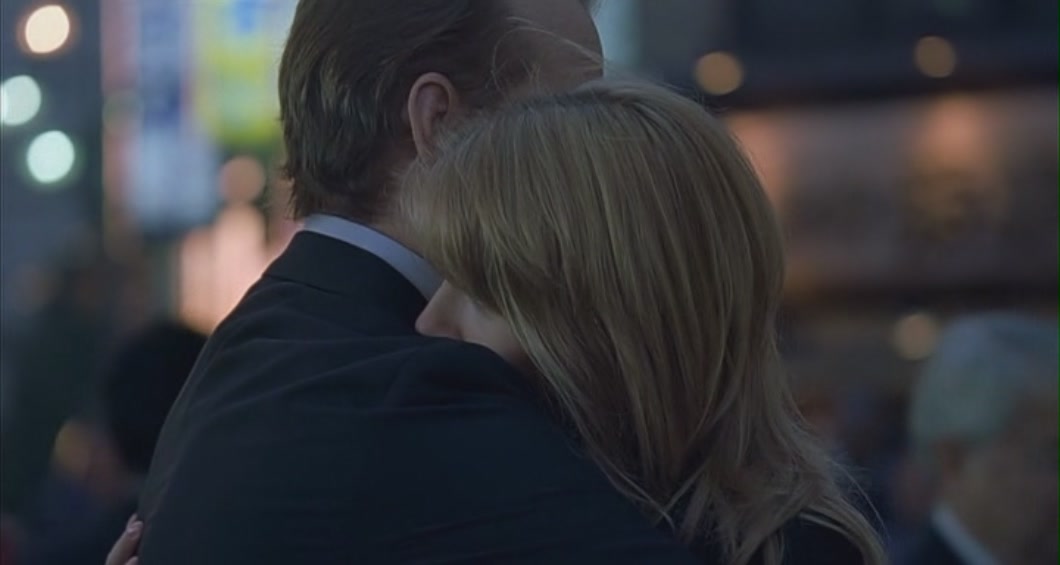
Is a goodbye forever, or is it only until the next time? And is every goodbye a new welcome, or is it sometimes merely a full stop? And finally, does it come with a soundtrack and a sunset, or with a silent nod and a broken heart?
Worldwide (and notably, mostly American) cinema has been concerned with the composition of a beautiful and yet meaningful goodbye scene since the dawn of time. Our favorite characters leave, the favorite characters of favorite characters leave, and we are left in awe and melancholy.
But it’s time to wave this prologue goodbye, and move forward with the breaking down of our 20 favorite goodbye moments from the cinema world, where trains are waiting for the characters to kiss, where death comes only when the monologue is over, and where a composer knows the right time to hit just the right chords to break our hearts into bits.
20. Departures
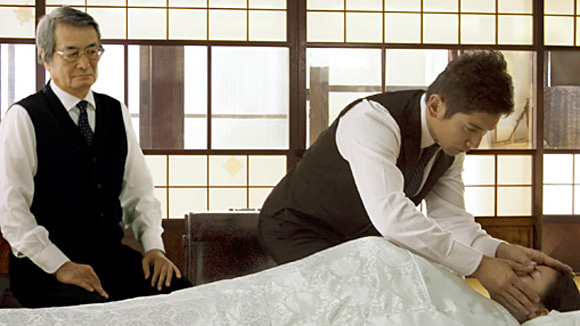
The Goodbye Scene: A group of women kiss a deceased and beloved man’s face goodbye during his funeral, only to crowd it with kitschy lipstick kisses.
Its Importance: A group of women decide to kiss their beloved one goodbye inside his “last residence”, and fill his face with lipstick kisses, much to their confusion and hysterical laughter.
It is not a triumphant Hollywood goodbye, nor an underlying indication of a bunch of plot points to be resolved with this movement, but the niceness of this goodbye scene is found in its simplicity. The women start cracking up in bittersweet laughter when they see the spoiled face of their beloved one, unable to restrain the tears.
It is unsure why they are actually laughing, whether they think the viewing is ridiculous, or that the whole formality of such a ceremony and the need for excessive care for a body whose soul is long gone are needless. But their laughter is a rare humanistic moment in film history, and one of the most touching coffin goodbyes to be experienced on the big screen in a long time.
19. Harold and Maude
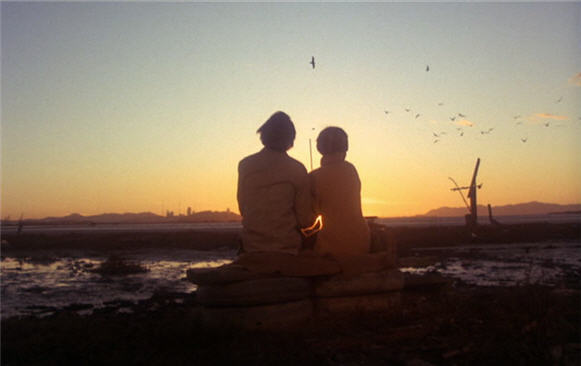
The Goodbye Scene: A dying elderly woman gives her new best friend, a young boy, some steady advice about moving on.
Its Importance: Harold is obsessed with death, so it comes as a pleasant surprise when he is so awkward upon his first meeting with it as he has to wave his new friend, septuagenarian Maude, goodbye for good. She is dying inside the ambulance, and tears are in his eyes, for he has finally realized that there’s one thing more exciting and more addictive than death – love.
But Maude, being about six steps further within life’s actual cynical self, gives him a good push to get away from her memory and more deep into his life; when he tells her he loves her, she gladly accepts that and merely encourages him to go into the real world and love some more.
18. Manhattan
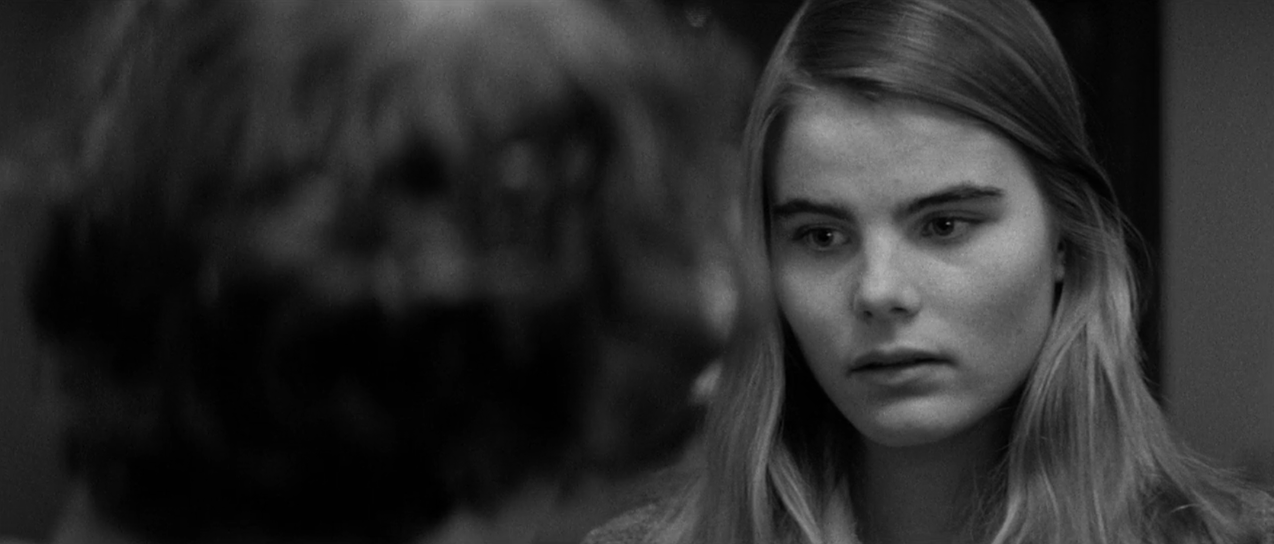
The Goodbye Scene: A man salutes his almost-underage love interest in a crowded airport, and welcomes a life lesson coming from her in the shape of one of Woody Allen’s best quotes to date.
Its Importance: Allen’s Isaac and Mariel Hemingway’s Tracy have a lot of luggage to empty in front of the latter’s actual luggage about to be embarked on a plane to take her away for six months. But this also has to be a short-timed and short-term goodbye, now mutually difficult for the two characters.
Isaac is a changed person and realizes that Tracy is just an immature child, as much as he is a mature adult. He needs her guidance and light, and she is taking it away for six months.
For the first time in the film’s duration, he begs. But Tracy knows better than to surrender to his childish impatience, and comforts him beautifully: “You got to have a little faith in people.” Yes, she is not about to forget about her love for Isaac, and no, this is not a forever goodbye. And now Isaac, for the first time, smiles, as for the first time, he’s in love.
17. E.T.

The Goodbye Scene: A young boy bids his alien pal farewell as the latter returns to his home planet, forever.
Its Importance: Whose VHS childhood isn’t contaminated by E.T.’s flying bicycles? And who wasn’t repulsed by said alien’s first appearance, feeling for the poor child having to confront it, only to have one’s own heart melting upon the warmness of the intergalactic friendship formed?
“I’ll be right here” is a quote with a finger targeting the head and not the heart (shout out: Disney), because memory is what keeps a true friendship alive, in an era when Skype was as alien as the title character of this film, for friendships that have to end due to miles and miles put between their subjects.
It is a physical separation, but E.T. taught us quite early through life that what goodbyes do to us in person can have a seat reserved forever inside our heads.
16. Casablanca

The Goodbye Scene: The protagonist decides to join the Resistance in fighting the Third Reich’s forces, choosing what’s best for the love of his life, and beginning a beautiful friendship with a local officer.
Its Importance: Rick is a heartbroken, yet proud man – and this is what makes his decision to say goodbye forever his former lover so she’ll join her new lover toward the continuation of their common greater purpose in Lisbon such a bold screenwriting move. This is not a goodbye scene, this is an account clearance set up through the whole duration of classic Hollywood’s “Casablanca”.
Rick decides there’s a greater purpose in life, Ilsa makes up for her common past with Rick and follows the rightful path towards the Resistance, and Casablanca is about to become a safer, less corrupt place to step upon. And it’s all due to the decision of our protagonist to set his ego and personal desires aside, and let the past rest in the past.
Yes, Rick and Ilsa will will always have Paris, but for their individual lives to go on, they need to part ways and embrace their new beginnings. Here’s looking at such a bittersweet decision, kids.
15. Dogville
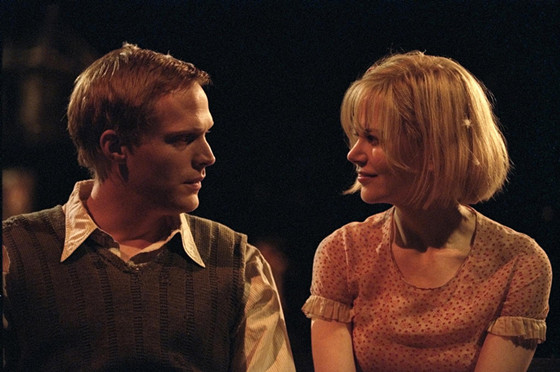
The Goodbye Scene: A woman says goodbye to her love interest, who betrayed her along with the rest of the city she wished to benefit from, just before shooting him dead.
Its Importance: “Goodbye, Tom” is as cold as goodbyes and epitaphs can be. Tom is not innocent because he did not rape Grace – his platonic love for her gave her all the courage needed to silently endure all the horrendous acts of manipulation endured by her. Tom’s silence was the evil deeds’ legalization.
And director Lars von Trier decides through Tom to punish the whole class of spiritual people who theoretically state their compliance with the powers of Good, only to practically stay neutral in front of this world’s Evil.
In a wildly boomerang-esque move, Tom calls the gangsters from whom Grace sought refuge in Dogville in the first place, only to give her back to them and cash her in.
In sweet irony that only this film’s cynicism could provide, Grace is now armed with all she needs to put down the vile people once and for all who “welcomed” her in the town, which represents the American suburbs through von Trier’s lens.
And it takes an illuminating dialogue with her father about the natural resemblance between dogs and people – and a handgun – to wave goodbye at her Tom, her very own Grace, and her hope for the human race on a whole.